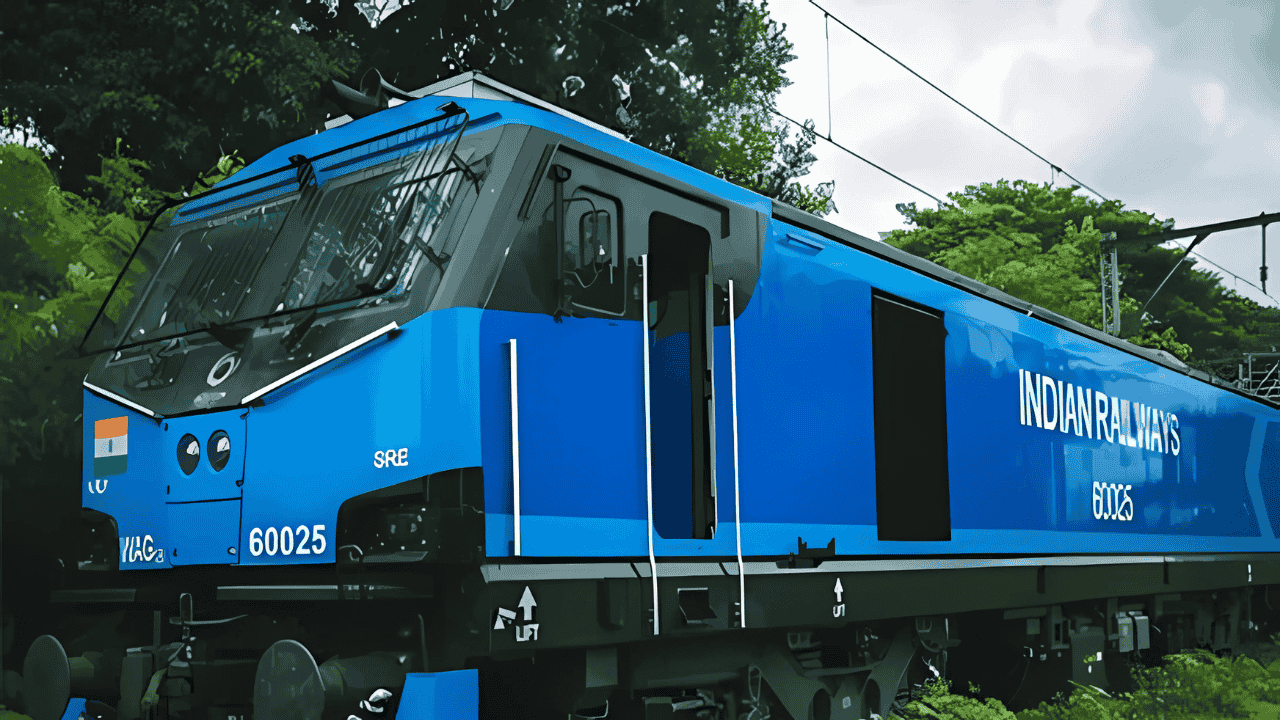On 28 July 2025, Indian Railways created history by successfully completing the test run of the country’s first hydrogen-powered train coach at the Integral Coach Factory (ICF), Chennai. This achievement is a significant step towards India's Green Transport Mission and is highly important for UPSC and other competitive examinations.
Hydrogen Train: Key Facts & Features
Technical Details
India’s 1,200 horsepower hydrogen train is the most powerful hydrogen-operated rail engine in the world. According to Railway Minister Ashwini Vaishnaw, this technology will place India among the global leaders in hydrogen train technology.
Key Highlights:
Engine Power: 1,200 horse power (world’s highest)
Passenger Capacity: 2,638 passengers (8-coach formation)
Maximum Speed: 110 kmph
Hydrogen Storage: 3 special coaches for hydrogen cylinders
Comparative Status
Currently, only 4 countries — Germany, France, Sweden, and China — run hydrogen trains, which have power outputs of 500–600 horsepower. India’s 1,200 HP engine surpasses all of these.
Project Development & Timeline
Project Inception
The project was launched by Northern Railway in 2020-21. The total cost is approximately ₹136 crore, including train production and infrastructure development.
Phased Testing
March 2025: First trial on Jind-Sonipat route in Haryana
25 July 2025: Successful test of driving power car at ICF Chennai
31 August 2025: rollout of the full train
Significance in India’s Green Railway Mission
Net Zero Carbon Emission Goal 2030
Indian Railways aims for net zero carbon emissions by 2030, and the hydrogen train will play a pivotal role.
Major Initiatives:
100% Electrification of the broad-gauge network
Renewable Energy: 30,000 MW requirement by 2029-30
Hydrogen for Heritage: Plans for 35 hydrogen trains
Environmental Benefits
Hydrogen trains release only water vapor, making them zero-carbon emission vehicles. A single hydrogen train can reduce annual CO₂ emissions equivalent to that produced by 400 cars.
Global Context and India’s Position
International Hydrogen Rail Networks
Germany: Coradia iLint (World’s first hydrogen train)
France: AGC hydrogen trains in trial phase
Japan: JR East’s hydrogen train project
China: CRH380D hydrogen variant
India’s 1,200 HP engine is more powerful than any of these, positioning India as a global leader in hydrogen rail technology.
Economic & Strategic Importance
Energy Security
The hydrogen train will reduce dependence on imported fuel and strengthen India’s energy security.
Job Creation
This project will develop a hydrogen ecosystem, generating new skilled employment opportunities.
Challenges & Solutions
Key Challenges
Hydrogen Storage: Requires high-pressure storage
Refueling Infrastructure: Need for an extensive hydrogen station network
Initial Cost: Higher investment compared to conventional trains
Government Solutions
National Green Hydrogen Mission: Large-scale hydrogen production
Infrastructure Development: Hydrogen storage facility in Jind
Future Plans
Heritage & Hill Routes
Under the “Hydrogen for Heritage” initiative, 35 hydrogen trains will operate on heritage and hill routes.
Commercial Operations
By end of 2025, commercial operations are expected to start on the Jind-Sonipat route.
Other Related Developments
India-Maldives Cooperation
On 28 July 2025, PM Modi participated in the 60th Independence Day of Maldives and signed 6 new agreements, including those on fisheries and digital cooperation.
Why this matters for your exam preparation
This topic is crucial for UPSC 2025-26 for the following reasons:
For Prelims:
First Indian hydrogen train test at ICF Chennai
1,200 HP – World’s most powerful hydrogen train engine
Net zero carbon emission target by 2030
Hydrogen for Heritage initiative
For Mains:
Green Transport and Sustainable Development
Climate change and carbon neutrality
Energy security and self-reliance
Technological innovation and economic growth
Current Affairs Linkages:
National Green Hydrogen Mission
Aatmanirbhar Bharat Abhiyan (Self-reliant India)
Paris Climate Agreement and India’s commitments
This event is not only significant for exams but also marks a historic step towards India’s sustainable development and environmental protection.






